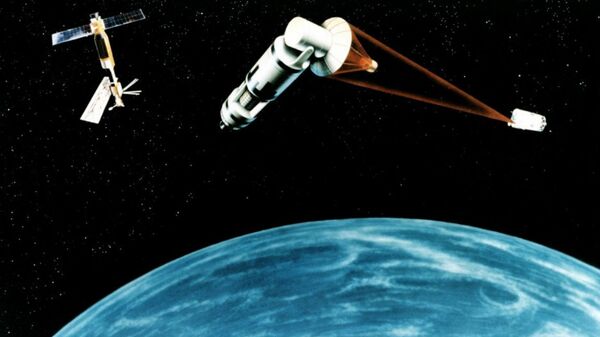WASHINGTON (Sputnik) — Russia will publicly release its own database of Earth orbiting satellites, Viktor Shilin, head of the Russian delegation at the 59th session of the UN Committee on the Peaceful Uses of Outer Space, told the Russian newspaper Izvestia.
"My gut reaction is that the Russian move should (but probably will not) be viewed as a constructive move."
The Russian proposal is also in accord with the Open Skies policy that US administrations have pursued since President Dwight D. Eisenhower proposed it at his 1955 summit in Geneva with Soviet Premier Nikolai Bulganin, Spinney noted.
"Full disclosure of our satellites existence, if not the capabilities, would also be in the spirit of the Open Skies Treaty… It would be nicer if we did it instead of the Russians."
The Treaty on Open Skies was signed in 1992, entered into force on January 1, 2002 and currently includes 34 state parties. The treaty establishes a program of unarmed aerial surveillance flights over the entire territory of its participants. The United States and Russia are both signatories.
In addition to tracking non-military satellites and space debris, the Russian catalog will include data which the United States Space Command does not make public.
However, the Russian proposal would only reveal to the American public and populations around the world what the US, Russian and Chinese governments already know, Spinney pointed out.
"The Russians and Chinese certainly know about these satellites, both their orbits and the types of capability (although the precision of the sensors is highly classified). So the only people kept in the dark by US info restrictions are the American people."
The Russian proposal would improve transparency and trust between Moscow and Washington, but it would also reveal to the US public the extent of their own military surveillance system across the world, Spinney observed.
"No doubt the Pentagon will try to portray this as an aggressive act. But the real threat, if there is one at all, would be that the American people should be amazed by the shear scope of our presence, compared to that of the Russians and Chinese."
However, Spinney also noted that he expected the American public to display little in any interest in the details of US global satellite surveillance that may be revealed in the Russian data bank.
"Given the current state of popular awareness [in the United States], the likelihood of a popular demand for accountability is virtually non-existent."
The Russian platform would become an analogue to the North American Aerospace Defense Command (NORAD) catalog that lists over 45,000 tracked objects.



